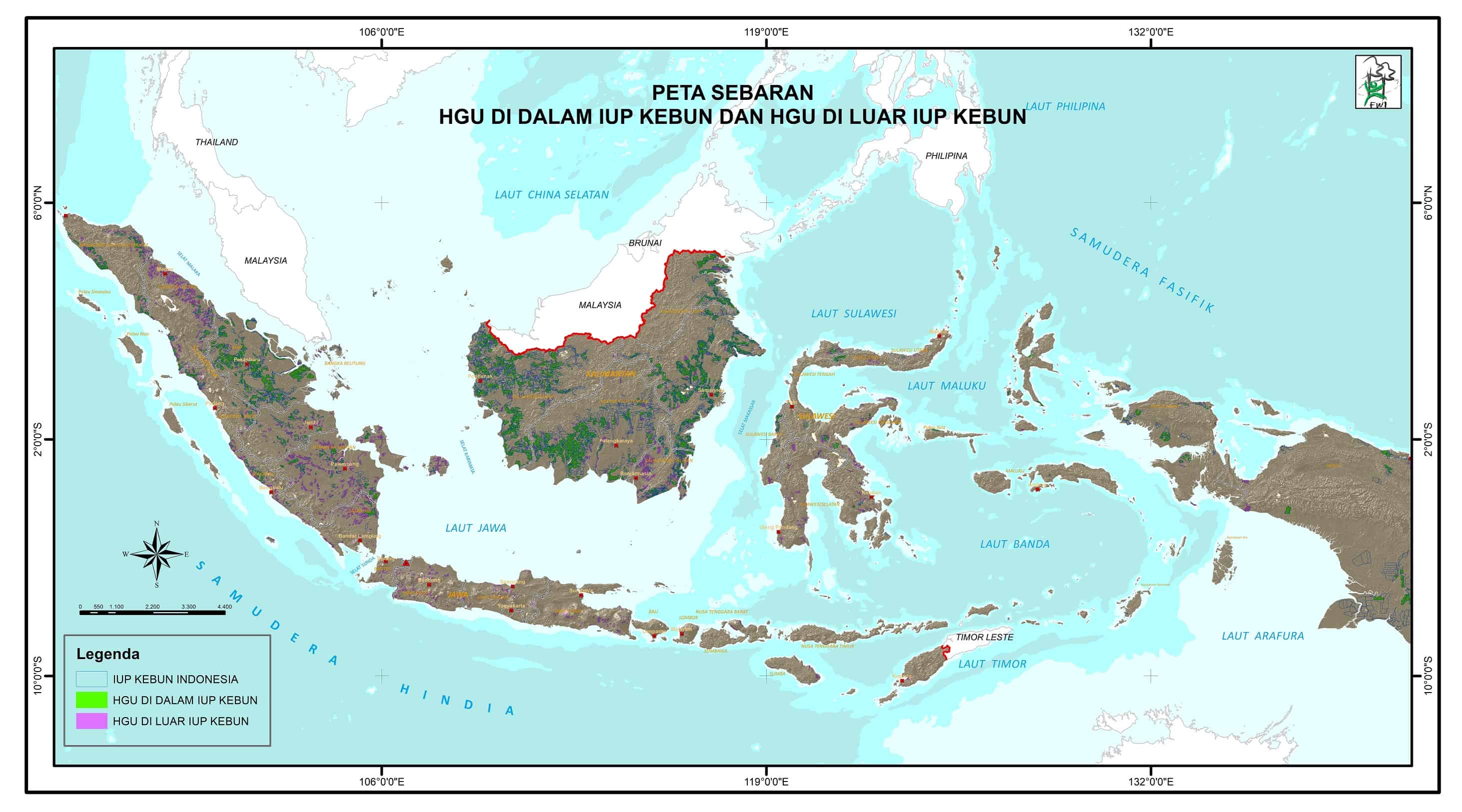SPATIAL INFORMATION ALTERNATIVES "an urge to be more disclosed"
Cultivation Rights Title is one among legal protections granted by the state for a piece of land given to parties, either individually or collectively, and / or a legal entity. State authority in distributing HGU was part of constitutional mandate in regards of regulating and governing land affairs, which in turn will bring welfare to the people. Inevitably, HGU is a product of a Government policy which manifested the State Sovereignty. Off course, the implementation then must be open and accountable to the public.
Various attempts have been made by some people in demanding their right to know everything about HGU. Starting from the information access test, information disputes from the Information Commission, both Regional and Central to the Supreme Court as the highest legal body, direct reporting to Ministries or State Institutions that have the authority and / or direct relations with the President as the leader of the country, until reporting of legal violations of the closure. HGU information, and countless public campaigns carried out by civil society groups. However, it seems that HGU has some kind of invincibility to overcome all of the protests again and again.
Blocked access to HGU information due to various reasons around the absence of information distribution mechanism, while legally it has been declared as open information to the public, is a portrait of a not-so-good government. And it is the public’s right to continue in demanding improvements in every aspects of state administration.
The state’s authority to grant land rights in the form of HGU to palm oil plantation business licenses is part of natural resource management, so in this context, information disclosure is important. Until now, information disclosure, especially in the palm oil plantation sector, is still not executed well. Based on Forest Watch Indonesia’s experience in testing access to this information, not all information regarding plantation business licenses and also HGUs can be obtained. Especially information related to spatial data or maps.
Spatial data or maps of palm oil plantation business licenses and HGU concessions were very important as a basis for spatial analysis so that the community can participate in monitoring how the suitability or compliance of plantation business licenses with: land rights for plantation businesses, spatial policies, legality of forest areas, overlapped land use, and also potential conflicts with indigenous peoples’ territories.
Therefore, Forest Watch Indonesia then conducted a spatial study aimed not only to determine the relationship between palm oil plantations HGU distribution in Indonesia with various policies on space, but also the territories of their indigenous peoples, accelerating access to public information, as well as exert the right to seek, obtain, own, store, process, and convey information about HGU.
The purpose of writing this book is to provide brief information regarding land use rights, public information disclosure on HGU and spatial studies regarding the distribution of HGUs in palm oil IUPs. Although the review of the information referred to is not carried out in depth, the authors sees it subjective enough to describe the initial indication of HGU in palm oil IUP and its relation to space utilization and land use.
This book also aims to accelerate the disclosure of HGU information, so that hopefully the Government will immediately open HGI information access to the public (in particular: accurate and up-to-date spatial data) and provide room for participation in the control and supervision of the granting HGU in palm oil plantation businesses or others.
The structure of this book consists of:
- Background
- Overview of Cultivation Rights Title
- Public information disclosure on HGU and FWI’s experience in disputing HGU information and its results
4. Results of spatial analysis of palm oil HGU and its relation to: Obligation of palm oil plantation business licenses in obtaining HGU, the suitability of HGU commodities with palm oil plantation businesses, their relation to forest areas, overlaps with other land-based licensing sectors, overlaps with customary (adat) areas, as well as examples of cases of HGU suitability with provincial spatial plan (Papua, West Papua and East Kalimantan)




